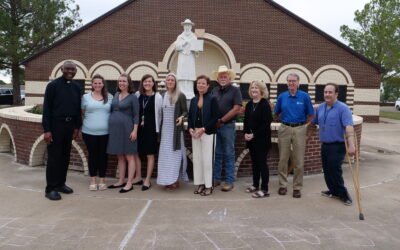What Are We Assuming?
I love a saying that I heard recently. “What is assumed is often what is most important.”
The idea is that in so many situations in life, we erringly assume that something is understood or true, and we are left wondering why our plans aren’t working. What we need to do is go back and question some of our most basic assumptions so that we can address the issues that are required to move forward successfully.
For parishes, let’s take a look at a few assumptions that we make about parishioners, and that they make about us, that leave us all feeling confused and often disappointed.
Assumption 1
One of the assumptions that parishioners make about the pastor and his team of associate priests and team members, is that they actively live their faith in community. Yes, they do. They assume that people who work in that office and volunteer there are praying together and talking about their faith regularly. Many of those parishioners rarely visit the parish office, but limit their activities to Mass and donuts. And when they do find themselves in the rectory or office for something, they are often shocked and disappointed if they don’t feel any difference between that environment and an insurance company’s office.
Think about that for a moment. They come in expecting a sense of prayer, joy and fellowship, and often leave confused, and even deflated. If that is true in your parish, talk about it and change it quickly. It will often make the difference between someone going deeper in their faith and involvement in the parish, and deciding that they will limit their involvement in their faith to Mass.
Assumption 2
The assumption that so many pastors, parish leaders and employees make about parishioners is that they understand their faith. Some will react to this and say “well, I don’t do that. I am fully aware of the fact that many of our people haven’t been well catechized…” I get that. But I think we still don’t adequately appreciate and address the “mildness” of the spiritual and intellectual understanding of the people in the pews.
I remember going to Mass one day on vacation in the mountains and the priest letting everyone know that he was going to do a little teaching. In what amounted to about five minutes spread throughout the Mass, he would simply stop and explain what was going on. “Now we enter into the Consecration, in which Jesus Himself comes down to us in His Real Presence, so that we can receive Him. This is real and miraculous, and the greatest gift He gives us.” Something like that. I can tell you people walked out saying “I loved that he did that, because I don’t usually remember how powerful this is…”
Or perhaps the priest says “Remember, this first reading that you’re about to hear is written by Paul from prison. He is just days away from being beheaded, and he is reaching out to…” How many people sitting in that church are edified, educated and even a little surprised by that 30 second contextual explanation? Most of them! And yet, when we assume that everyone at Mass knows the difference between the Corinthians and the Ephesians, or frankly, between the Old and New Testaments (yes, I said it!), we leave people feeling like they are the only ones who are out of the loop. It’s actually not a surprise that so many people stop going to Mass because they feel uniquely uneducated and uninformed. Avoiding the assumption that they know what is happening, at even the most basic levels, can be so powerful.
What other assumptions do we make about our parishioners? What assumptions do they make about us? As we approach Christmas, how can we rethink these assumptions to better reach God’s people? Understanding these things, and talking about them, will make a huge difference in how we go about bringing them to Jesus.

Pat Lencioni | Co-founder
The Amazing Parish




0 Comments